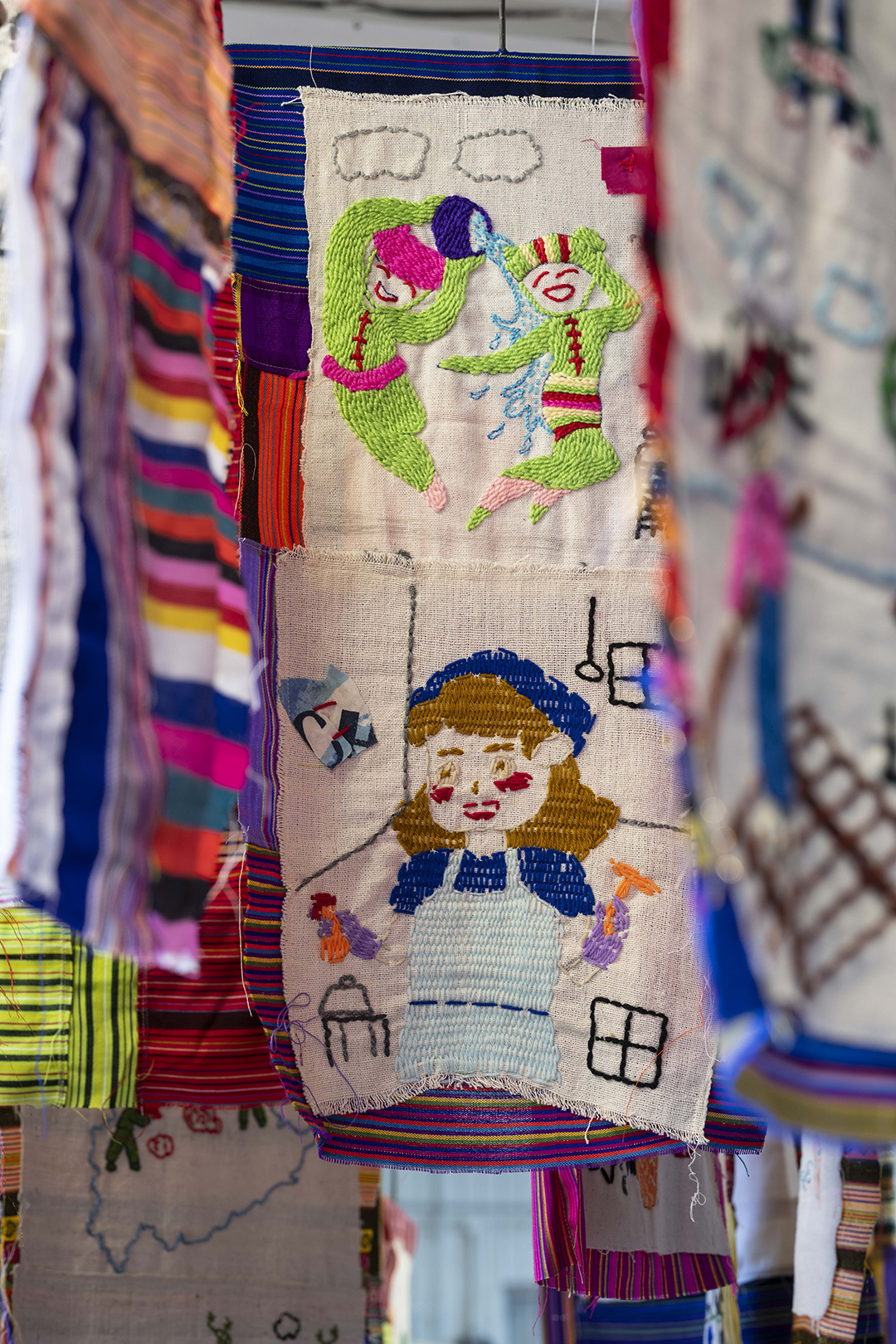Workshop with Jakkai Siributr
Textile Industry Museum, Salhus
Saturday, 25.October
13:00-15:00
Get your free tickets here.
As a former knitting factory that operated between 1859–1989, the Textile Industry Museum holds over a century of industrial history.
As part of across, with, nearby, it hosts artist Jakkai Siributr’s ongoing textile project There’s no Place (2020–ongoing). Its elements of embroidery and displacement resonate with the site’s layered histories of labour, material, and care, also on a neighbourly level.
For over a century, the factory’s workers and their families lived in the surrounding area, shaping the lives of many generations of neighbours.
Today, the museum preserves historical machinery and workspaces to trace production processes from raw fibre to finished product, and also explores the legacy of local history through stories of an industrial past.
Jakkai Siributr’s project There’s no Place (2020–ongoing) began at a refugee camp at a border between Thailand and Myanmar where people from stateless Shan communities were invited to share their life experiences through embroidery. Siributr’s long-running textile project speaks to the impact of nation-states and colonialism on indigenous groups and comprises textile banners.
It also offers a series of workshops today from 13:00 to 15:00 that engage directly with the project. Each piece may be touched, altered, and reinterpreted by viewers and workshop participants. At the Textile Industry Museum Salhus this weekend, Siributr welcomes you for one of these textile-based workshops held within the installation. The workshops initiate gestures that evade fixed authorship: anyone and everyone can participate in stitching.

Jakkai Siributr (b. 1969, Bangkok) works with textiles to explore the connections between tradition and modernity. His embroidered installations reflect on themes of violence, religious symbolism, migration, identity, and personal memory. His studio works with artisans from Phayao Province in northern Thailand and supports the local community. Siributr also currently works with the Shan Youth Organization in Northern Thailand. He lives and works in Bangkok and Chiang Mai.